Opinion: Ways PSD Can Help Students of Color
Protests have been sparked around the country by the deaths of George Floyd, Breonna Taylor, and hundreds of other African Americans murdered by police. Here is a starting point for Poudre School District to support this movement and improve the education, safety, and well being of students of color.
Protests across the country are calling for the end to police brutality, particularly against African Americans and other Americans of color.
Denver Public Schools have just announced a plan to phase out the School Resource Officers (SRO) and use the funding for more mental health services, citing the school to prison pipeline as one reason. There are clear actions that can and should be taken to ensure Poudre School District students are not subject to the effects of the school to prison pipeline.
What is the school to prison pipeline? According to ACLU, the school to prison pipeline is “a disturbing national trend wherein children are funneled out of public schools and into the juvenile and criminal justice systems.”
“Many of these children have learning disabilities or histories of poverty, abuse or neglect, and would benefit from additional educational and counseling services. Instead, they are isolated, punished and pushed out,” they said. This system has also been shown to disproportionately affect students of color.
The school to prison pipeline is exacerbated by schools using “zero tolerance policies,” which are often correlated with a rise in SRO employment. These policies mean that SROs become involved in minor disciplinary issues that would ordinarily be untouched by law enforcement. By involving more SROs, minor infractions such as cursing in class or throwing a book become criminalized. This leads to higher rates of suspension and expulsion, and black students are expelled and suspended at three times the rate of white students.
“Students suspended or expelled for a discresony violation are nearly three times more likely to be in contact with the juvenile justice system the following year,” according to the ACLU. Overall, the school to prison pipeline is a system wherein students of color are singled out by law enforcement early in life and then sent down a road to further imprisonment.
This system can be corrected, according to some experts. “First, there has to be a foundational, collaborative effort between the school district and the law enforcement agency. Second, it has to be the right officer that’s placed in this position. Third, the officer has to be properly trained,” Mo Canady, the executive director of the National Association of School Resource Officers, said here. His organization focuses on training SROs and believes that officers in schools help more than hurt.
While Canady’s organization and others are focused on widespread training of SROs, metropolitan areas such as Denver have taken initiative to help curb the school to prison pipeline problem. Back in 2012, the DPS required further training for SROs and began to monitor the demographics of student misconduct and how punishments were distributed.
In 2013, the DPS and the Denver Police Department also drafted an agreement focused on de escalation and reducing law enforcement intervention in discipline. The agreement also required that parents be notified as soon as possible when a student received a ticket or was arrested, that students being questioned “in a manner and time when it has the least impact on a student’s schooling,” and that SROs were notified when disabled students or students on a Individualized Education Plan (IEP) were involved so that accommodations could be made.
An agreement resembling this one is an option between PSD and the Fort Collins Police Department. The FCPD has already voiced their support for the Black Lives Matter movement here, and has acknowledged the 8 Can’t Wait initiative, aimed at implementing policies that can reduce police violence by 72%. A resolution similar to the one created by the DPS would help move forward the progress already supported by the FCPD.
This agreement, however, did not solve all of the problems of heightened arrests and detainments of black students in DPS. From 2017 to 2019, 45% of the students handcuffed by the DPS Department of Safety were African Americans, while 14% of DPS students are African American.
The ultimate solution for creating a healthy relationship between students of color and SROs comes from four main changes, according to the Leadership for Educational Equity. Schools must establish the limitations and jurisdiction of the SROs, distinguish and limit the use of police force whenever possible, ensure transparency in the SRO program, and create minimum training requirements.
All of these requirements were met, with the notable exception of policies to ensure transparency, by the DPS. They saw a drop of 58% in suspension of students of color and a drop of 54% in expulsions of students of color. Fort Collins can follow this policy too.
For the SRO program to truly “promote an inclusive and safe climate through proactive and innovative services, relationships, and communication,” according to the district, these policies must become the norm. Already, some progress is underway. The PSD policy on physical restrainment specifies that deescalation be taught and that physical methods be only used as a last resort, and that guardians be notified of physical restraint.
PSD has also just announced further steps to be taken to increase the staff training on inclusivity and equity in schools, further education and curriculum on equity, and create a system to report incidents of racism.
“When there have been incidents of hate and discrimination, those with the courage to stand up for what is right give me hope,” PSD superintendent Sandra Smyser said in an announcement on June 5. “Together, we must talk about and challenge norms so our students can feel safe, supported and seen where they learn.”
This policy of de escalation and accountability must be implemented in all areas of school discipline. Furthermore, the position of SROs in Fort Collins schools should be clearly defined and limited, police force should be only used in situations of absolute necessity, and SROs must be trained on their position in the community. There is a very clear path to equity in schools, and all PSD needs is the initiative to do so.
If you would like to research further on the school to prison pipeline, read The New Jim Crow by Michelle Alexander which focuses on the mass incarceration of African Americans, or watch 13th on Netflix which shows the development of the prison industry starting from the Civil War.
If you would like to donate to the Black Lives Matter cause, here is a good place to start. Calling representatives and calling for the implementation of the 8 Can’t Wait in your police department is another way you can help. Here is a YouTube video with PSD students and parents speaking about their SRO experience. The video is blocked on PSD computers.
Your donation will support the student journalists of Rocky Mountain High School - CO. Your contribution will allow us to purchase equipment and cover our annual website hosting costs.
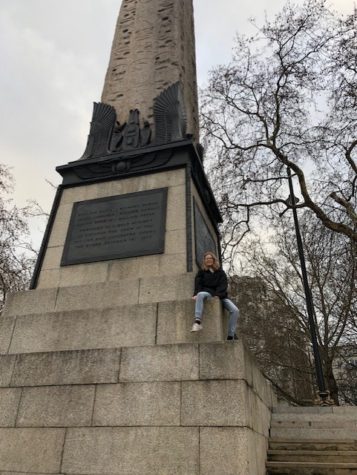
Payton is a senior at Rocky Mountain High School. They've been on the newspaper staff for 3 years. After high school, Payton wants to work as an investigative...


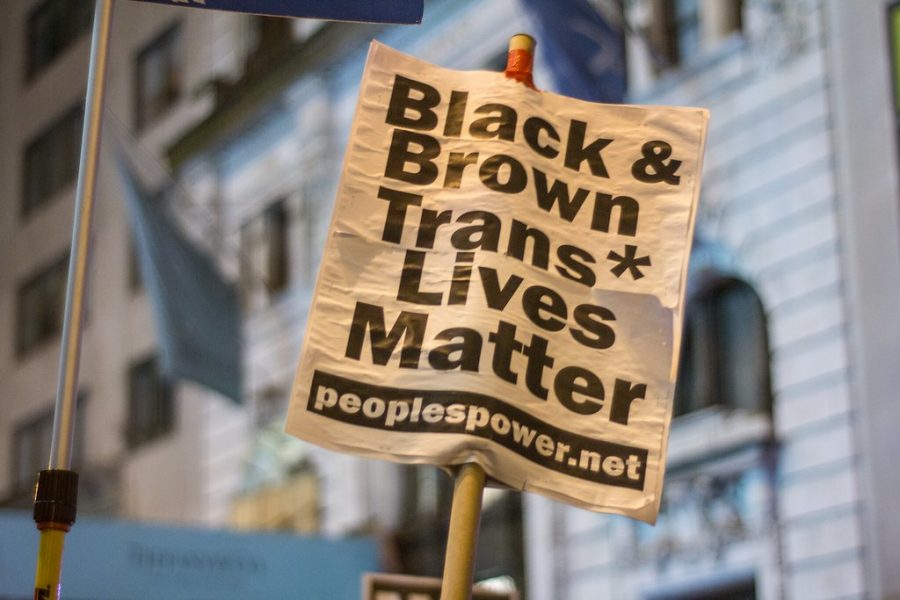
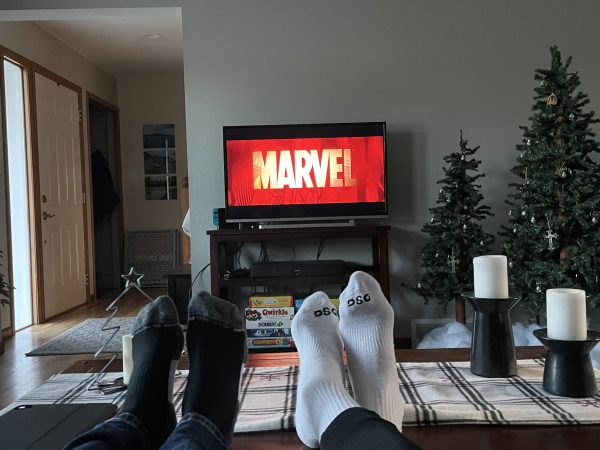

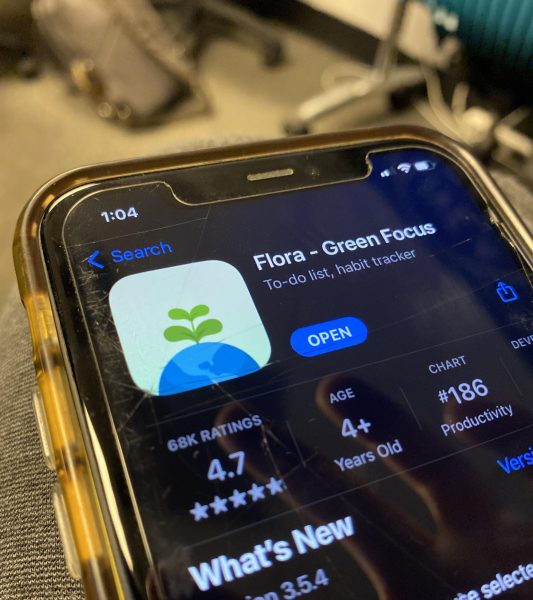
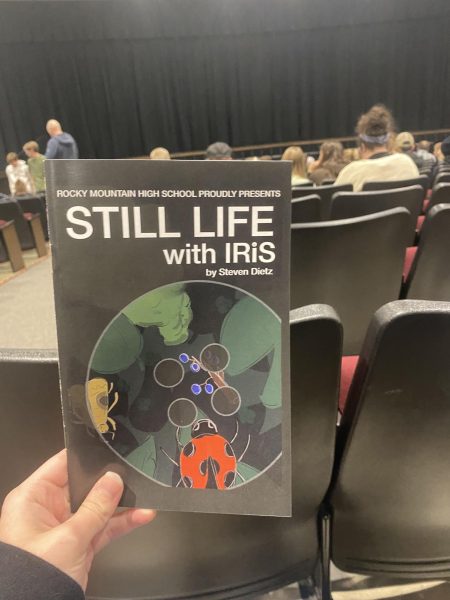
della fisher • Sep 3, 2020 at 11:16 am
Super good story Payton knew how to properly get her point across on a difficult subject matter.
Lilah Claycomb • Sep 2, 2020 at 1:37 pm
I’m so glad that you addressing this topic
Laylah • Aug 25, 2020 at 12:11 pm
I like how the writer discusses how racial injustice and discrimination is right here in our own district and research behind what the district is going to do about it. I also like the suggestions at the very end for educating readers more on this issue.
Annabel Lasher • Aug 24, 2020 at 2:57 pm
great story payton! it is clear that you did your research on this topic!